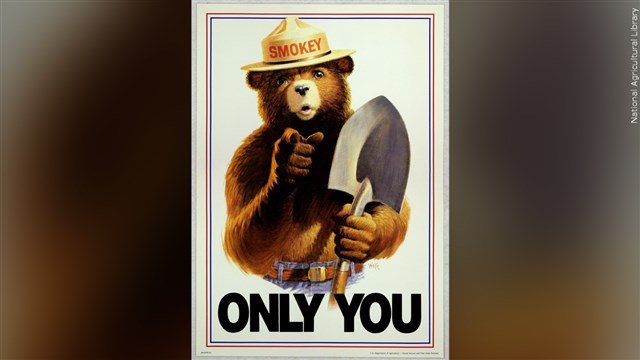U.S. Forest Service in NW has Fourth of July plea: ‘Start your summer – not a wildfire’

PORTLAND, Ore. (KTVZ) — Start your summer – not a wildfire. That's the message officials with the U.S. Department of Agriculture Forest Service - Pacific Northwest Region have for public lands users before the Independence Day holiday.
With warmer weather and the July 4th holiday fast approaching, Forest Service employees ask everyone in Oregon and Washington to review these fire safety tips before planning their celebration, vacation, or recreation on public lands.
- Fireworks – and other pyrotechnic devices (including smoke bombs and exploding targets) – are illegal on National Forests, year-round.
Nationally, nine out of 10 wildfires are caused by humans, including half of all wildfires on National Forests in Washington and Oregon.
"Too many wildfires are caused by unsafe recreation activities," Tracy Calizon, Assistant Director fore Recreation for the USDA Forest Service Pacific Northwest Region, said. "When vegetation gets dry, just about anything that throws a spark can start a fire."
- Campfires, stoves, grills, and certain types of motorized equipment are often seasonally restricted. Check the forest's website for current restrictions.
- Check to make sure you have a spark arrestor on any motorized equipment – and that it’s in working order.
Seasonal fire restrictions are location-based, and their timing is based on conditions in that area – not the calendar.
Many people recognize the wildfire potential posed by improper management of campfires and cooking equipment. But other recreation gear, including dirt bikes, Off-Highway Vehicles, and generators can also start fires if not properly maintained and operated according to the manufacturer's instructions.
"‘Know before you go,’ includes checking for current restrictions in the area you plan to visit, before every visit,” Calizon said.
Before heading to any recreation destination, including public lands, consider these wildfire prevention tips for motor vehicle travel:
- Ensure tow chains are secured so they can’t strike the road surface, including rocks and debris.
- Don’t drive - or park –vehicles over dry grass or brush.
- Never discard cigarettes on the ground, or out a car window.
“Roadside fires are one of the top three fire causes in the Pacific Northwest,” said Jacob Gear, Regional Fire Prevention Coordinator. “There are a few simple things we can do, like checking for dragging chains, servicing our brakes, and checking our tire pressure, to reduce the risk of a wildfire.”
Gear suggests everyone keep a fire extinguisher in their vehicle, because wildfires can be sparked so easily by motor vehicles during hot, dry summer weather.
“Our fine fuels, like grass, dry quickly and can ignite easily. Just driving through or parking your car on tall grass could easily ignite a wildfire,” he said.
Where conditions permit campfires and charcoal grilling,
- Make sure the area is clear of vegetation for several feet, in all directions – including overhead!
- Use a metal fire ring or grill, where available (or construct a fire ring of rocks).
- Keep plenty of water and a shovel nearby.
When finished,
- DROWN coals and embers with water.
- STIR to break up coals and embers and ensure everything is thoroughly wet.
- DROWN the ashes with water, and STIR again!
- FEEL the extinguished fire (and surrounding ground) to ensure it’s cool to the touch.
- If it’s too hot to touch, it’s too hot to leave!
"The Forest Service uses all available strategies and tools to manage wildfires. Reducing human-caused fires frees up valuable resources for suppressing the naturally-caused fires that we know we'll experience", said Kelly Kane, acting USDA Forest Service director for Fire, Fuels and Aviation in the Pacific Northwest and Alaska regions.
"Fires started by Forest visitors often occur near roads and campgrounds, making them especially likely to put public safety at risk. Every new fire also increases the risks that our firefighters face," she said.
For more information about wildfire prevention and campfire safety, visit: https://smokeybear.com/en/prevention-how-tos.